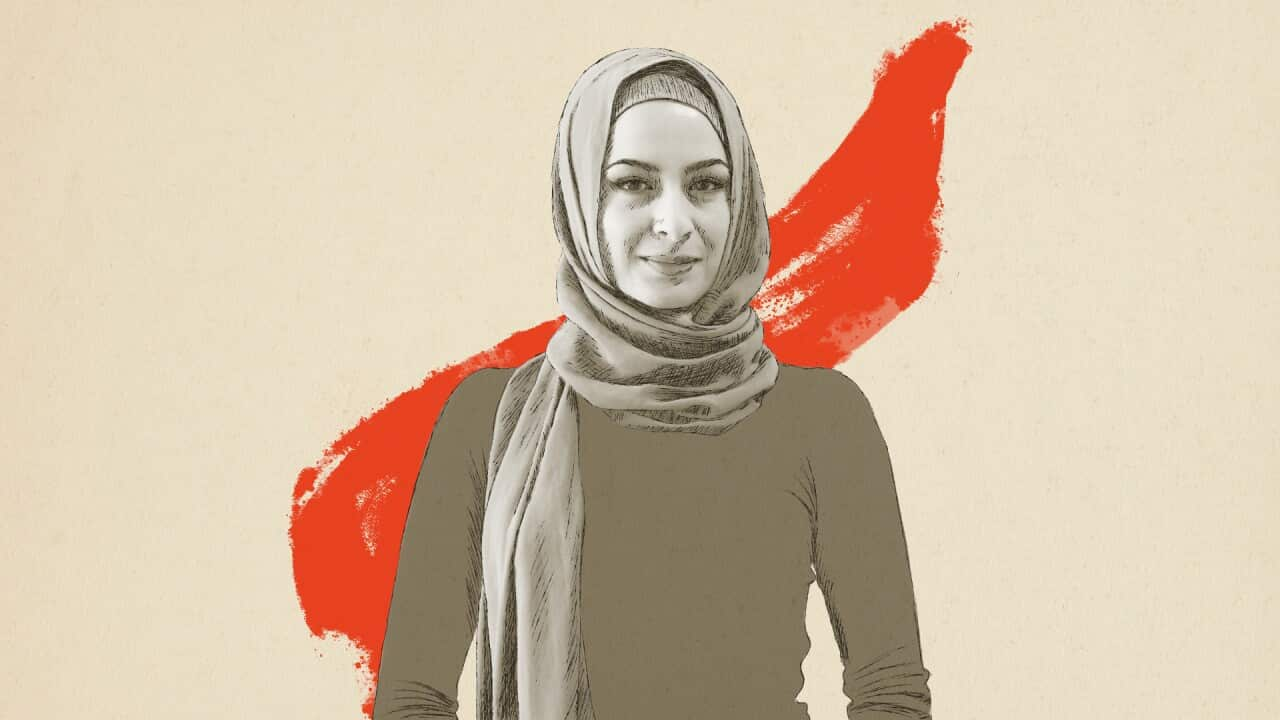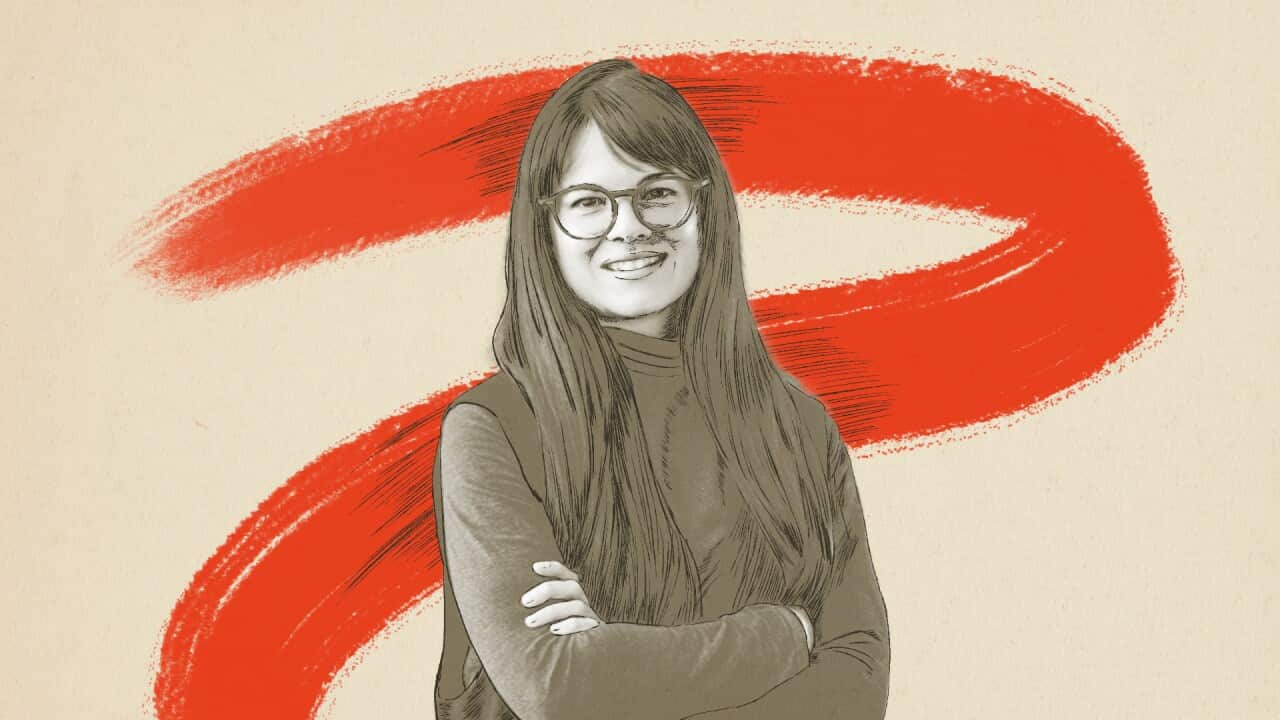TRANSCRIPT
"Hey, come on man. We're about to go shoot some hoops."
"I'm good guys. Y'all have fun."
"You thought you were the exception every night, the drinking, the smoking. I am a heart attack. Don't underestimate me."
That was a 2017 ad by Lexington Medical Centre in the United States, issuing a stark warning of the heightened risk of heart attacks associated with drinking and smoking.
It followed the lifestyle of a man who has a heart attack, and the personified 'heart attack' was voiced by a man.
So, what does this say about how heart conditions are framed as a men's health problem? Are other conditions similar?
And do we know enough about the side effects of different medications on female and trans bodies?
"Like a lot of women, I think the symptoms are misdiagnosed as other things, and you know I got to a stage where I was going into an emergency every week."
"The first line of that letter was 'Max is a lady experiencing gender dysphoria'. It was just really one of those slide down the wall moments."
The male body has long been treated as the default in medicine.
Studies into health conditions and trials for various medication position the male sex as the norm.
In fact, it wasn't until 1998 that the United States' Food and Drug Administration established a formal rule to consider demographics like gender, age and race in a new drug application.
But in Australia, this same commitment to a gender lens is lagging.
I'm your host Catriona Stirrat and in this episode of 'Hysterical' we'll take a look at the prevailing bias in medical studies that continue to treat the male body as the default.
Tanya Hall is the founder and CEO of hearts4heart - an organisation that advocates for education, early diagnosis and self-management of heart disease.
Tanya was diagnosed with a heart condition at six months old, but despite this early diagnosis, navigating the health system was far from simple.
"Like a lot of people with congenital heart disease, you may have - and it's like I did, I had open heart surgery, but sometimes later in life you start presenting with other complications. And so for me that was atrial fibrillation and irregular heartbeat. And so I was about 17 years old, my heart was going at 230 beats a minute. I thought I was having a heart attack and I went to my GP and he mistook it as just anxiety."
Tanya says it would have been an opportune time for the doctor to check her pulse, perform an electrocardiogram, or heartbeat check, and ultimately deliver a diagnosis.
Instead, there was a 12-year delay in diagnosis.
"And so, what that meant was, like with many conditions it progressively gets worse and I kept going to the emergency department and it took quite some time for it to be diagnosed. And so, like a lot of women, I think the symptoms are misdiagnosed as other things. And unfortunately, as I said, with many conditions, if it's not detected early and treated early enough, then it can be more difficult to treat and the clinical outcomes may not be as effective."
Cardiovascular disease is the biggest killer of women around the world, and yet countless reports globally suggest women are more likely to be misdiagnosed and under-treated for the condition than men.
This is partly because heart conditions have long been associated with men.
But according to an Australian Institute of Health and Welfare 2019 report, in Australia, cardiovascular disease caused more female deaths than any other disease group in 2016, while it was actually cancer for males.
There is also significant ignorance around the different symptoms women can present with heart conditions because men continue to be overrepresented in clinical trials and research.
Like many women, Tanya says her symptoms just weren't taken seriously.
"My first experience of having that irregular heartbeat at 17 years old, it wasn't until I was 29 that it was diagnosed. You know, the episodes were quite infrequent to start off with, but because it hadn't been diagnosed or treated, then that progressively got worse. And so, they became much more frequent. I got to a stage where I was going into an emergency every week."
Dr Magdalena Simonis, who you might recall from our previous episode, is an Associate Professor with the Department of General Practice at the University of Melbourne and in the expert committee for quality care at the Royal Australian College of General Practice.
She says Australia's Therapeutic Goods Administration hasn't used a particular gender lens to date, with Australia and Europe still relying heavily on drug trials conducted in the United States.
"We feel that it's almost been a deliberate and intentional oversight, but I don't think it is. I actually think it's steeped in ignorance because the scientific and medical profession has been male dominated and they don't possess our body parts, so we are speaking a totally different language when we speak about our conditions to them."
Dr Cheryl Carcel - a clinician researcher at the Georges Institute - agrees that the TGA is falling behind other countries in terms of their guidelines.
"FDA from the US has sort of this draft guidelines that spell out that clinical trialists need to have a diversity action plan to increase enrolment. And while in the US this is only a recommendation, trials probably need to comply with this if they want to have their medications approved for the market. As far as I know, Australia's TGA does not have something similar. It's a guideline or recommendation, but they do have the Women's Health working group and I think that's sort of an advisory forum that looks at women's health products and how they're regulated. So that might be probably an avenue for TGA to look at women's health. Although it's very focused on women's health and the other gender or non-binary group may not be included in that."
A spokesperson from the Department of Health responded to questions around gender considerations in evaluations of medicine, and said the TGA considers the safety of the medicine in people who are pregnant or lactating and whether there are any safety or efficacy in particular subgroups where additional information or measures to support safe use may be required.
They added that the Women’s Health Products Working Group is an advisory forum that supports collaboration between the Therapeutic Goods Administration and key stakeholders to discuss issues relating to the regulation of women's health products and support other evidence-based outcomes under the National Women’s Health Strategy.
But Dr Simonis insists a long-standing ignorance around women's bodies has real and dangerous consequences.
"Well, it's had devastating effects because women will present sometimes very differently to men. Yes, we might have similar ischemic chest pain symptoms, but a lot of women won't have those symptoms. And I think it's not just about the symptoms that we present with. So, we might develop a bit of jaw pain or arm pain or back pain with our heart related symptoms, but it might not just be difference in the way our pain expresses itself. It is also in the way that the health professions professionals also respond to women who come in with symptoms of pain."
And by this she means the stigma attached to women's presentations of pain.
"And have been labelled as either anxious or hysterical or histrionic in fact. And certainly, if they come from certain ethnic backgrounds. So, I've had colleagues talk about the histrionic Italian or Greek woman in an accident emergency department, which is a - you think that, well, these are different ways of expressing themselves, but it doesn't necessarily mean that their pain is any less significant or any less serious because they might be more vocal about it. So, I think that there are cultural reasons why we are ignored or why there's delay in diagnosis and management, but there are also the research-based aspects too."
So how has this assumption of the male body as the default in medicine played out throughout history?
Dr Carcel shares some of the dangerous incidences where women were excluded from clinical trials.
"I think this idea of the white male being default in medicine really started in the sixties from that devastating thalidomide tragedy where pregnant women were given thalidomide for morning sickness and nausea without knowing that this was harmful to the foetus. So, thousands of women gave birth to babies with missing limbs, among other things. And so, at that time it was the routine exclusion of women in childbearing years from medical research was on the ground to avoid this tragedy. Again, because of giving an experimental drug that to prove to be teratogenic. And also women were thought to be having irregular hormonal cycles and making them two different to be included in trials. And so that's how it started."
But is this exclusion still occurring today?
"So, if we fast forward to the present, trials have come a really long way, but still not really enough to say that we are representative of the clinical trials, representative of the community that we're giving our medication to. So, in some of the work that we've done, we've looked at stroke clinical trials and found that women are still underrepresented. There are either40% of the population, some even 20% of the population. And this still holds true even if we compare the clinical trial population to the actual people who are having this disease in the community. And it's not just in stroke really, it's in cardiology to oncology, and it's happening in many of the trials that we have."
This underrepresentation of women has even contributed to negative side effects from certain medications, as Dr Carcel explains.
The FDA looked at some of the prescription drugs removed from the market in the 1990s to 2000 and eight out of 10 of the removed medication had greater health risks in women.
"This isn't just in the US. So, we looked at and some people looked at World Health Organisation database looking at individual reports of adverse drug reactions and just found that women are 1.5 to 1.7 times more likely to report an adverse drug reaction compared to men. So, it's really a big issue in that when you don't have enough representation in clinical trial, you don't have enough power to look at safety and efficacy of trials. And if we did that in the beginning, then we wouldn't have to withdraw these drugs post market."
Women from culturally and linguistically diverse backgrounds are even more underrepresented in trials.
Ms Ansari from the Multicultural Centre for Women's Health explains.
We also need to advocate for medical research and clinical trials that are culturally responsive and inclusive of diverse demographics such as migrant and refugee people, LGBTQIA+ people, Aboriginal and Torres Strait, and people and people living with disabilities. This will then help ensure that medical knowledge is relevant and also the treatments are then in turn appropriate and responsive to Australia's diverse population."
As someone who has worked in the heart disease space since 2011, Tanya says she hears plenty of stories of women being discharged and misdiagnosed without any follow up care.
Part of the reason for this is how women can present with different symptoms to men for heart disease, and yet there is an underrepresentation of women in clinical trials for various heart conditions.
"Due to women presenting differently, for example, even with heart attack symptoms, not every, many women don't have the chest pain that men do, but they'll experience fatigue, shortness of breath and all those types of things. So again, those symptoms are often mistaken as something else and hence why they're misdiagnosed. And in addition to that, we're seeing that obviously with the guidelines, for example, in terms of the clinical pathway to treat women and men the same way. But we know that once again that the symptoms are often different, even the adverse effects for medication are different. So, we really need to be factoring these things when we are looking at not only diagnosis, but also the treatment for patients living with heart disease."
Tanya knows what it's like to be ignored.
"I was incredibly frustrated. And I think as well because as mentioned, sometimes they put it down to, oh, it's anxiety or stress and other things that you start, and I find this from speaking to a lot of patients, there's almost, you start questioning yourself, is this all in my head? Is this something that I should really be concerned about? But within yourself that you're not? Well, that for me, as mentioned, my heart would be going at 230 beats a minute and I'd be tired and I'd have chest pain and I have all of those things and I knew something wasn't right. So just not being understood, not getting the appropriate care that I felt that I needed was incredibly stressful and concerning. And a lot of other women, it tends to lead to psychological issues like depression and so forth."
But it's not just cis-gendered women who are affected by this bias.
There has been even greater exclusion of trans and gender-diverse peoples in studies and research on various health conditions, as Deakin University's Dr Joe Latham described in a previous episode.
He adds there's also been a lack of long-term research around trans peoples' specific health concerns.
"For decades, trans people were sort of just given hormones and just left to sort of go out into the world and survive on our own without much sort of follow up in terms of scientific clinical studies about what living that kind of life has, what kind of effects it has on your healthcare into the future. They've started in the past sort of 10 years. There's a lot more research happening around things like that. But again, you have trans people who are like 70, 80 now who've been on hormones for decades, and there's just really little that they know a lot of, especially the endocrinology of trans medicine is just really not based on really solid research because that research just hasn't been done."
In our first episode, Max shared their experience of being misgendered by a GP in Melbourne.
They visited a clinic to receive a referral to commence their journey in micro-dosing testosterone but were shocked when they took a closer look at the referral form.
"So, it seemed like it was going well. The GP said that they would give me a referral letter to be able to proceed, so that was great. I left feeling quite heard and quite positive about the experience and I think that's what made it really jarring. When I opened the letter, the referral letter and the first line of that letter was Max is a lady experiencing gender dysphoria. It was just really one of those slides down the wall moments."
Max attributes their experience to an ignorance around trans people among health professionals.
"And I think they just didn't have any framework for what that meant in terms of language and in terms of how to respond to someone respectfully. The doctor, I think, understood that I wanted to start testosterone. I had been assigned female at birth, but there was a lack of understanding of the whole framework, which influenced the language and how they saw me and how they referred to me."
A gender binary continues to infiltrate medicine, making Max's experience as a non-binary person particularly challenging.
This was Max's experience with their GP in navigating micro-dosing testosterone.
"Even places that are affirming, there's still quite a binary understanding of what gender is and what trans people are. It's still very much depicted in the need to say that you have gender dysphoria to be able to access healthcare, and there's the pressure to paint yourself as a binary. So, for me to say, I was assigned female at birth, I'm trans, I need to start taking HRT so that I can feel comfortable in my body - that is kind of understood. But then when you get to the point of, so you want to change your T levels, but you don't want to look like a guy. So how does that work? There's still a lot of confusion, I think, for doctors and it needs to move past their judgments and what they see within that binary."
Trans people also confront more explicitly inappropriate healthcare interactions.
Melissa, who is a trans woman, shares what she described as a 'confronting' experience when she told her GP she was bisexual.
"When I told my GP, because I'm openly bi, he said, oh, don't you like breasts? It was a bit confronting and it was just an odd thing to say. So obviously pursued and referred to get a referral to see the psychiatrist, but then I've educated them since. But I think if you get an experience like that, will you go back to the GP to persevere? Not everyone's that strong or resilient."
And yet again, the burden seems to fall on trans patients to educate their healthcare providers.
"There is still, I think that knowledge gap or because we're such a small minority and maybe the medical profession doesn't think they need to have much knowledge on it or just refer it to the psychiatrist. It's not my problem sort of thing. And even when I had breast surgery, I didn't think about hair removal I should have, but you just going through, just want to get it done. Now you've sort of got to think about hair removal. Lucky you can do it with breast implants, but it's just those little things that you don't think of you should think of. People just say, well, you should have thought of that Melissa."
Dr Carcel says many of the clinical trials just collect information relating to sex as male or female, or sex at birth, and occasionally gender identity - but there is still a long way to go.
"And so, this is something that we are missing in clinical trials. And one of the ways to guarantee that we have enough people that do not consider themselves men or women in clinical trials is we might need to intentionally over sample. So go into that group, recruit more so we can have sort of meaningful data to use and look at in terms of efficacy and safety."
Dr Simonis welcomes the establishment of the Centre for Global Research for Sex and Gender at the University of New South Wales.
It aims to 'undertake research and advocacy to challenge the male-centric approach to medical care', acknowledging that more than 70 per cent of participants in early-stage clinical trials are white men.
But she says Australia has a long way to go.
"And I think that so much of this has stemmed from the fact that we are really in that nascent phase of understanding this complex differential in science. Everything we've inherited to date from a scientific and medical perspective, yes, the last 200 years have been amazing, but up until that, everything came back from Aristotle. I mean, he just equated us with animals and creatures, and we were just biological. We were hysterical. We couldn't participate in votes. And that whole value system and that whole message around what women are and where their role is in society has penetrated through everything, right? All our historical medical leaders have learned from that as their basis."
Changing attitudes is the first step.
"And it's only very, very recently that we are entering this other phase where the perception society has of women in society and our role and our influence and the necessity that exists to have us as equals, as it benefits everyone is only very recent. Women are more likely to have chronic disease for most of their life, have chronic pain for most of their life, and that is a huge burden on community and the budget, not just an inequity that needs to be addressed. It benefits everybody if you support this area of research and also women's health."
For trans women like Melissa, removing the burden of education from trans patients is critical.
"We've just got to think about how do we approach everything and how do we include minorities and people from different backgrounds and how they deal with their medical issues and how GPs approach it because we're becoming more and more multicultural. So, it's just broad amount of study that needs to be done and so can be incorporated into the system for future design of medical system and healthcare funding."
And as Max shares, including trans and gender diverse people in this space is vital.
"Any trans person I know is not looking to erase anyone else's experience or identity. There's nothing wrong with the term woman. That's great. That's fine. It's not about erasing words or reducing words. It's about adding and having our experiences there alongside."
In our next episode of 'Hysterical', we'll take a look at how these issues affect those on the very frontline.
Are female and trans health workers more vulnerable to bias and discrimination... and how does this perpetuate further barriers in our health system?













